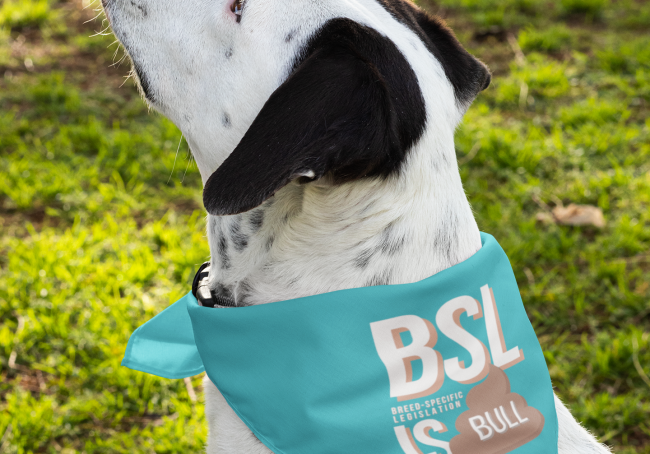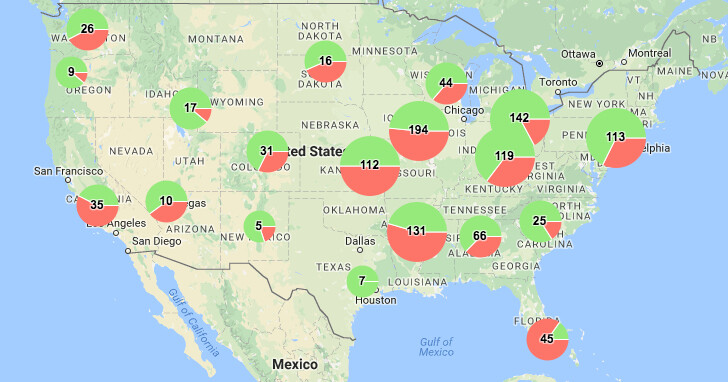Download and read our Breed-specific legislation toolkit, full of research and other information to help you advocate on behalf of families affected by these policies.

Breed-specific legislation, or BSL, can be a wide-ranging set of laws that prevent or restrict dog ownership based on systemic bias against people and unfounded stereotypes about a variety of dogs.
BSL began in the 1980s as a direct response to the racist claim that a Black man with a “pit bull” dog is a drug dealer who uses that dog to intimidate and attack people. This stereotype was plastered all over magazines and used as an excuse to prevent diversity in communities.
Unfortunately, although breed-specific legislation is on the decline, some politicans still defend its use – some even saying the quiet part out loud and stating that it’s the dog owners they don’t want in their community, not the dogs themselves.
In addition to outright bans of dogs based on how they look, BSL can include:
Breed-specific legislation is most often enforced by animal control officers visually identifying a dog’s breed or breed mix. This is an ineffective way of identifying a dog’s heritage. There is a large body of scientifc research showing that visual identification is inaccurate.
It is our position that BSL is unconstitutional, violating the 5th and 14 amendments.
BSL is often vague, in large part due to the use of visual identifcation for enforcement.
And, whether we like it or not, pets are considered property. Property cannot be seized without due process. Taking a person’s pet away without fair enforcement procedures is a violation of a dog owner’s civil rights.
Read more about how we’re proving that BSL is unconstitutional.
Outside of the “pit bull” dog label, BSL has grown to include a variety of other breeds based on implications about who owns those “types” of dogs. Most recently, many Asian breeds are being added to breed restriction lists. This is undoubtedly tied to the racism Asian-Americans are currently experiencing in the United States.
See which areas across the U.S. have repealed or rejected breed-specific legislation and which ones still have it.

We’re holding lawmakers accountable when they uphold laws rooted in racism and classism that violate the constitutional rights of individuals.

“[She] came around the corner with her pit bull “Baby.” Lisa was sobbing and hysterical [sic] screaming we were going to kill her dog.”
– One animal control officer’s account of seizing a person’s dog.
Breed-specific legislation causes real trauma to families, who are responsible members of their community. That’s one of the reasons why we’re helping them fight BSL in the court system.
Download and read our Breed-specific legislation toolkit, full of research and other information to help you advocate on behalf of families affected by these policies.
Help us collect data about the personal impact of breed restrictions, including BSL, by taking our survey.
Donate to help fund our outreach campagins and our grantee programs.